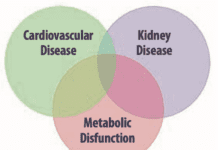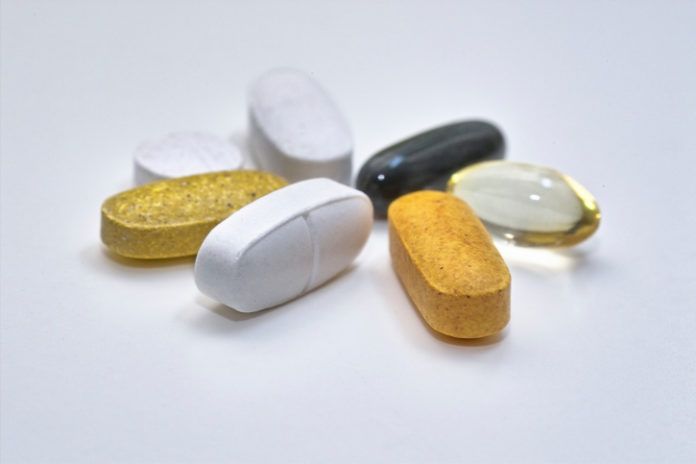With the US drought predicted to cause food-price increases of up to 5% next year, it might be time to take a harder look at whats in your grocery cart-especially those items that arent really groceries, such as pricey dietary supplements. Nutrition experts agree that its best for generally healthy people to obtain the vitamins, minerals and other nutrients you need from food, not pills.


Depending on your age, medical history and lifestyle, you might still need to fill some nutritional gaps or address special health issues with supplements. Its difficult to get all the vitamin D you need from food alone, for example, especially in the winter or if you cant get much sun exposure to make the sunshine vitamin. People at risk for age-related macular degeneration (AMD) may benefit from antioxidants, carotenoids and zinc, a combination typically sold as an eye-health formulation. Older adults, who may no longer make enough stomach acid to maximize the vitamin B12 from food, might consider a supplement. Check with your physician before starting any supplement regimen.
What about multivitamins, often touted as insurance against dietary nutrient shortfalls? Why would you take a big list of vitamins, needed or not, in a multivitamin? says Irwin H. Rosenberg, MD, editor of the Tufts Health & Nutrition Letter. The beauty of taking supplements is that, if theyre used effectively, you take those things you need in the right amount. Not everyone needs the same supplements or vitamins.
Its important to remember, too, that dietary supplements arent the same as prescription drugs, nor are their claims or quality subjected to the same rigorous scrutiny. Unlike medicines, which are tightly regulated by the US Food and Drug Administration (FDA), supplements fall under the 1994 Dietary Supplement Health and Education Act (DSHEA). Thats why youll see this fine-print disclaimer on ads for supplements: These statements have not been evaluated by the Food and Drug Administration. This product is not intended to diagnose, treat, cure or prevent any disease.
That disclaimer might surprise consumers who shell out some $22 billion annually for products that promise joint comfort, heart support, mental focus and alertness, a healthy immune system and other carefully worded benefits. Under DSHEA, which originated that label disclaimer, the manufacturer-not the FDA-is responsible for the accuracy and truthfulness of such claims, which must be submitted to the FDA within 30 days of use. Unlike standard drugs, the manufacturer is responsible for insuring that the product is safe, and the government does not review the products claims before packages hit store shelves.
Supplements are not medicines, explains Dr. Rosenberg, and their health claims are not regulated the same way as those of prescription drugs. Consumers often assume that since the government allows a product to be sold, the FDA has verified that the supplement does what it promises. But thats not the case.
Some of those supplement claims, in fact, may be too good to be true-or, at any rate, stretch the truth given the limited scientific evidence. When it comes to supplements, marketing often outruns research.
To sample such claims, we clipped ads from several issues of the promotional magazines distributed by the nations two leading warehouse clubs. (Most of these same products or similar ones are also sold in your local supermarket or drugstore.) We checked the most popular health claims against databases of scientific research and consulted Tufts experts. Our findings may cause you to take a closer look at the supplements that show up on your shopping receipts.
The claim: Juice up your immune system
High-dose vitamin C: Can 1,000 milligrams of vitamin C-as much as in more than 60 ounces of orange juice-really juice up your immune system? Thats a tempting claim, especially as cold and flu season returns. A 2010 review of the evidence, however, concluded that regular doses of vitamin C (at least 200 milligrams daily) did not reduce the risk of catching a cold, although it was linked to small improvements in symptoms. Some studies also show high doses might shorten a colds duration by about a day.
Although vitamin C is mostly harmless, moreover, 1,000 milligrams is more than 10 times the RDA (90 milligrams for adult men, 75 for women) and half the upper level (UL) considered safe.
As for the accompanying claim that vitamin C also supports cardiovascular strength, there is insufficient evidence that such supplements protect against heart disease. Taking vitamin C along with conventional hypertension medications does seem to slightly reduce systolic blood pressure (the top number), though its ineffective on its own.
Vitamin C does support collagen production for healthy skin and joints, another claim, but theres no evidence that amounts far in excess of the RDA are needed. Claims that vitamin C supports your antioxidant health are scientifically meaningless, as no requirement for antioxidants has been established.
The claim: Energize and promote mental alertness
B-vitamin complex: Claims for high-dose B vitamins tend to be difficult to measure scientifically: unleash pure energy, fuel energy, reduce stress, stay alert. While its true that B vitamins help the body convert food into fuel and use fats and proteins from the diet, theres little evidence that more is better. One 2011 study did find self-reported scores of vigor, general health and stress were improved in men ages 30-55 given a B-vitamin complex, versus placebo; participants also performed better on one cognitive test and rated themselves less mentally tired.
A much larger and longer study of 2,000 older women, however, tested high doses of folic acid, B6 and B12 over six years against placebo. Those randomly assigned to the B vitamins did no better on several tests of memory and cognitive function.
Its important not to be deficient in B vitamins, but most healthy people who eat a balanced diet get enough of B vitamins such as pantothenic acid (B5), thiamine (B1), riboflavin (B2) and vitamin B6. Supplements claiming to boost energy and alertness typically deliver 10 times the RDA of these B vitamins; some pack in even more, as much as 70 times the RDA. B vitamins are water-soluble and the body does not store them, so any extra your body doesnt need is simply flushed out of your system.
Take pantothenic acid, for example. The National Library of Medicine rates only one use of pantothenic acid supplements as proven effective-treating or preventing pantothenic acid deficiency. Yet energy supplements may contain 100 milligrams of pantothenic acid-1,000% of the RDA.
Similarly, the National Library of Medicine says theres insufficient evidence that thiamine is effective against stress. Do you really need 100 milligrams, 6,667% of the RDA, as found in some supplements? Probably not.
Fortunately, most B vitamins dont seem to cause any side effects even at such high doses. There is, however, a safe upper limit for vitamin B6, set at 100 milligrams for adults-thats 5,000% of the RDA, an amount found in some energy supplements. If youre also taking a multivitamin containing vitamin B6, you could easily exceed this safe limit. The National Institutes of Health (NIH) warns, Taking high levels of vitamin B6 from supplements for a year or longer can cause severe nerve damage, leading people to lose control of their bodily movements. The symptoms usually stop when they stop taking the supplements. Other symptoms of too much vitamin B6 include painful, unsightly skin patches, extreme sensitivity to sunlight, nausea and heartburn.
As noted, some older people may not obtain adequate vitamin B12 from food. The NIH says, however, that vitamin B12 supplementation appears to have no beneficial effect on performance in the absence of a nutritional deficit.
Advanced amino acids: Its true that your body needs certain essential amino acids that it cant synthesize; these must be obtained from protein in your diet. Theres little evidence, however, that taking amino acids in pill form boosts energy. In 2011, the FDA forced two companies to stop making health claims for amino-acid supplements, which included purported benefits against depression, obsessive-compulsive disorder, Alzheimers disease and ADHD.
The claims: Promotes heart health/cardiovascular and overall health
Coenzyme Q-10 (CoQ10): This vitamin-like substance is found throughout the body and in small amounts in meats and seafood. Does it help maintain proper circulation and promote heart health? The National Library of Medicine says maybe-if you already have cardiovascular problems. Coenzyme Q-10 appears to lower the risk of subsequent heart-related events after a heart attack. There is some evidence that it might be helpful for congestive heart failure, when taken with conventional medications, and for high blood pressure. It might, however, decrease the effectiveness of blood-thinning drugs such as warfarin (Coumadin).
Flaxseed oil: Many people seeking the health benefits of fish oil without the fish have turned to flaxseed oil, one of the richest sources of plant-based omega-3s. What flaxseed marketers dont say, however, is that the bodys conversion of the omega-3 fatty acids found in flaxseed oil (ALA) into the more complex EPA and DHA of fish oil is very inefficient. A 2008 Canadian study-among the most positive on the subject-found that the dose of flaxseed oil found in a single pill failed to raise blood levels of omega-3s other than ALA. Higher doses (2.4 and 3.6 grams) did significantly raise EPA levels, but no increase in DHA levels was seen for any dosage of flaxseed oil.
The National Library of Medicine says flaxseed oil does not significantly reduce cholesterol and triglyceride levels. Evidence for other possible benefits, including against atherosclerosis, heart disease and high blood pressure, is rated insufficient to draw conclusions. People should exercise caution about combining flaxseed oil with medications that slow blood clotting, including warfarin and aspirin.
Since the passage of DSHEA, other compounds such as herbs and plant extracts are sold under the same regulations as supplements for vitamins and generally recognized nutrients:
The claims: Promotes joint health/comfort/flexibility/
cushioning
Glucosamine and chondroitin: These are among the most highly touted substances for joints, topping $800 million in annual sales, and may be sold on their own or with other ingredients in supplements that promise joint health or improved movement. Glucosamine and chondroitin are also among the most thoroughly studied joint treatments-and the results are mostly negative.
In 2006, the federally funded Glucosamine/Chondroitin Arthritis Intervention Trial (GAIT), the largest study of its kind to date, found no clear benefit for most patients. A small subgroup, about 20% of participants with moderate to severe knee pain, did see a statistically significant benefit from the supplements. In 2009, another randomized trial found glucosamine and chondroitin no more effective than a placebo in slowing cartilage damage from osteoarthritis, the most common form of arthritis. In 2010, Norwegian researchers tested glucosamine in patients with chronic lower back pain and degenerative lumbar osteoarthritis; there was no significant difference between the glucosamine group and those getting a placebo.
Most claims for these supplements are cautious, using phrases like nourishes joint and connective tissue, supports joint cushioning or promotes joint comfort and flexibility. If you interpret these phrases as meaning you will experience significant relief from arthritis, you may be disappointed.
Although both compounds are generally safe, neither glucosamine nor chondroitin should be taken with blood-thinning medications such as warfarin.
Methylsulfonylmethane (MSM): Typically sold in combination with glucosamine and chondroitin and promoted for joint comfort and soothing sore joints, MSM provides sulfur, which the body uses to make collagen for joints. Evidence that MSM benefits arthritis patients is limited, and a 2011 review concluded that it is not clinically effective in the reduction of pain in the treatment of osteoarthritis. Some studies have shown positive but not definitive evidence that MSM is superior to a placebo in the treatment of mild to moderate arthritis of the knee.
Hyaluronic acid: A lubricating substance found in joints and cartilage, hyaluronic acid has been approved by the FDA for the treatment of knee osteoarthritis-by injection. Oral forms of hyaluronic acid have not been shown to be similarly effective and there has been little research putting claims for lubricating, rejuvenating and rehydrating joints to the test. Its typically sold in combination with other joint health compounds-check the Supplement Facts label.
Avocado soybean unsaponifiables (ASU): This plant extract is thought to slow the production of inflammatory compounds the body makes in response to arthritis, thus protecting cartilage. A 2003 study published in the Journal of Rheumatology is often cited as evidence of ASUs effectiveness; this was an in vitro study, however, using cells in a laboratory, and not a clinical trial on actual arthritis sufferers. Subsequent studies cited by ASU supplement marketers are likewise laboratory tests, not human trials, and four of five such published studies involve the same scientist, an employee of the supplement company. Such findings could still be valuable, but until theres a randomized trial comparing ASU against a placebo in arthritis patients, these claims should be considered unproven.
Omega-3 fatty acids: Recent research has raised question marks about hopes that pills containing the omega-3s found in fish oil could improve heart health or protect your brain (see the October newsletter). Some supplements also tout omega-3s for joint comfort. According to the National Library of Medicine, Fish oil alone, or in combination with the drug naproxen (Naprosyn), seems to help people with rheumatoid arthritis get over morning stiffness faster. People who take fish oil can sometimes reduce their use of pain medications such as nonsteroidal anti-inflammatory drugs (NSAIDs).
The claims: Improve memory, concentration and focus
Ginkgo biloba: Most memory supplements target concerns about failing cognitive abilities, rather than energy as with B vitamins, though they may also make claims about alertness and focus. Most prominent among these memory enhancers-and most thoroughly tested, with generally negative results-is ginkgo biloba, a Chinese herbal remedy on which Americans spend $250 million annually.
The Ginkgo Evaluation of Memory (GEM), a large and long-running clinical trial, has repeatedly reported that consumers are probably wasting their money on ginkgo products. The randomized, double-blind, placebo-controlled trial enrolled 3,069 participants, ages 72 to 96, at six academic medical centers. Most recently, GEM researchers announced that twice-daily doses of 120 milligrams of ginkgo extract did no better than a placebo in slowing older adults rate of cognitive decline over six years. Researchers found no evidence for an effect of ginkgo on memory, language, attention, visual-spatial abilities or executive function. No benefit was seen, either, when results were analyzed by age, sex, race, education, genetic markers for dementia or initial cognitive status. Earlier GEM findings had debunked ginkgos purported protective benefit against Alzheimers and overall dementia.
In an interview, study co-author Steven T. DeKosky, MD, of the University of Virginia concluded about ginkgo, Ive got no good reason to suggest you continue to take it beyond your own blind faith.
Vinpocetine: Sometimes added to supplements containing ginkgo, vinpocetine is a synthetic compound made to resemble a substance found naturally in the periwinkle plant. It has been used in Europe against strokes because its thought to increase blood flow to the brain. By extension, vinpocetine is also hypothesized to improve brain function, but this remains speculative. In three studies of older adults with memory problems associated with poor brain circulation or dementia-related disease, vinpocetine produced significantly more improvement than a placebo on tests of attention, concentration and memory. Studies of its effectiveness on healthy humans (rather than rats) are rare, however; one 1985 study found memory improvements among 12 healthy participants.
Phosphatidyslerine (PS): A fat-like substance found naturally in cell membranes, especially in the brain, PS is extracted from soybeans and, like vinpocetine, often sold in combination with other memory-boosters. Promoters may boast that PS is the only such ingredient with a qualified health claim approved by the FDA; they are less likely to repeat the FDAs qualification that there is little scientific evidence for this claim. Results for PS on people already suffering from memory problems are modest at best: In one Japanese study of 50 participants over six months, those assigned to PS scored no better than those given a placebo on memory tests overall; in subjects with the lowest initial memory scores, however, those treated with PS showed improvement. In an Israeli study that showed a benefit from PS, that effect was limited to one out of 15 tests-in which subjects could recall an average of six words, rather than four and a half for the placebo group. No published studies have evaluated PSs ability to protect the memory of healthy subjects.
More recently, pilot studies have begun to test the effectiveness of phosphatidyslerine combined with omega-3s. Results have been encouraging, but these studies to date have been too brief and/or with too few participants to be conclusive.
DHA: Along with EPA, DHA (docosahexaenoic acid) is the primary omega-3 fatty acid found in fish oil. Its also the most prominent fatty acid in the brain, especially in the neurons and synapses of the cerebral cortex-the gray matter responsible for memory, language and thinking-so it makes sense that DHA supplements might be good for your brain. But (as reported in-depth in the October newsletter) a recent review of the evidence for the prestigious Cochrane Review found only statistically insignificant improvements in cognition associated with DHA supplementation. Lead author Emma Sydenham, MSc, of the London School of Hygiene and Tropical Medicine, told us, Consumers should not be fooled into thinking that omega-3s necessarily improve cognitive health. Its not a magic bullet.
Huperzine A: This moss extract is a Chinese herbal remedy thought to increase levels of acetylcholine, a neurotransmitter, in the brain. The Cochrane Review concluded that huperzine A seems to have some beneficial effects on improvement of general cognitive function, global clinical status, behavioral disturbance and functional performance, with no obvious serious adverse events for patients with Alzheimers disease, but cautioned that there was inadequate evidence to make any recommendation about its use. Huperzine A has not been clinically tested in healthy humans, moreover, as a preventive against cognitive decline.
Antioxidants: Foods containing antioxidants are of course good for you. But among the many claims made for antioxidant vitamins C and E and beta-carotene, maintaining optimal brain health is not well supported by the evidence. Most large trials have found no difference compared to a placebo. The Physicians Health Study II, however, did find higher scores in overall cognition and verbal memory among men randomly assigned to 50 milligrams of beta-carotene every other day, compared to placebo.
The claims: Fights the premature-aging effects of cell-damaging free radicals/ age-defying… reawakens youthful activity
Resveratrol: This antioxidant found in red wine has been touted as a fountain of youth, but the evidence to date suggests its too soon to page Ponce de Leon. A new NIH study published in Cell, however, may explain how resveratrol works and pave the way for resveratrol-based medications.
Resveratrol appears to inhibit certain types of enzymes that help regulate cell energy. Clinical studies of resveratrol in humans have used about one gram daily-the amount in 667 bottles of red wine. Although some results have been promising, the long-term effects and safety of resveratrol in such doses remain under investigation.
The marketing of resveratrol, says Tufts Paul E. Milbury, PhD, author of Understanding the Antioxidant Controversy, is a good example of how preliminary data about dietary antioxidant health benefits and their purported ability to save us from chronic disease, and quite possibly reverse the aging process, has gained popularity with the public before scientists can unquestionably prove their benefits to humans.
























